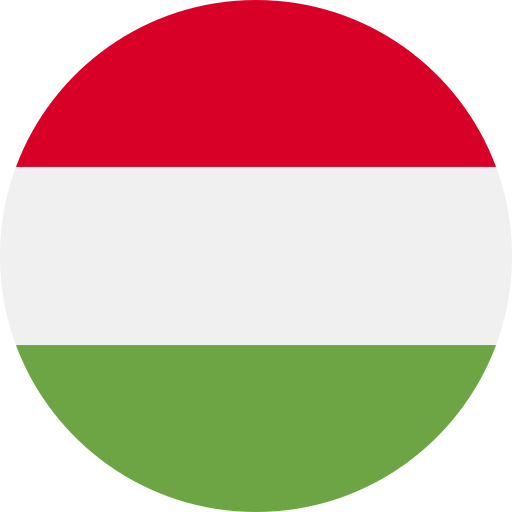Key Takeaways
- Distinct Language Features: Debrecen Hungarian has unique linguistic characteristics shaped by the city’s historical context, showcasing variations in pronunciation and vocabulary distinct from other regions.
- Cultural Richness: The city is a cultural hub with festivals like the Flower Carnival that highlight local traditions and customs, contributing to its unique identity within Hungary.
- Unique Culinary Landscape: Local dishes such as Hortobágyi palacsinta and Debreceni kolbász reflect the region’s rich history and commitment to preserving culinary traditions using fresh, local ingredients.
- Social Customs & Family Structures: Traditional values blend with modern influences in family structures, fostering close-knit relationships and celebrating milestones through regional customs and folk traditions.
- Diverse Economic Base: Debrecen’s economy thrives on a mix of industries, including IT and agriculture, which distinguishes it from regions relying heavily on tourism or traditional manufacturing.
- Educational Influence: The presence of educational institutions promotes a skilled workforce aligned with modern demands, driving innovation-driven roles within the local economy.
Have you ever wondered what sets Debrecen apart from other regions in Hungary? This vibrant city, often dubbed the country’s second capital, boasts a unique blend of culture, language, and traditions that make it truly distinctive. Understanding these differences isn’t just about geography; it’s about diving into the rich tapestry of Hungarian identity.
Overview Of Debrecen Hungarian
Debrecen Hungarian stands out due to its distinct characteristics influenced by the city’s historical and cultural context. As Hungary’s second capital, Debrecen showcases a unique blend of linguistic features not found in other regions.
Historical Background
Debrecen’s history dates back to the 13th century, marked by significant events like the Protestant Reformation. The city became a cultural hub during this period, fostering an environment where local dialects evolved. These historical influences shaped the way language is used today, leading to unique expressions and vocabulary specific to Debrecen.
Cultural Significance
Culturally, Debrecen is rich in traditions that impact its language. Festivals such as the Flower Carnival highlight regional pride and identity, showcasing how local customs influence speech patterns. The city’s educational institutions also contribute to a vibrant linguistic diversity, with students from various backgrounds adding their nuances to the local dialect. This blend creates a distinctive voice that reflects both heritage and contemporary trends within Hungary.
Linguistic Differences
Debrecen Hungarian showcases unique linguistic features that set it apart from other regions in Hungary. These differences stem from historical influences, local dialects, and cultural interactions.
Dialect Variations
Dialects within Debrecen exhibit distinct characteristics compared to standard Hungarian. You’ll notice variations in pronunciation, vocabulary, and syntax. For instance, locals often use phrases and expressions that might sound unfamiliar to speakers from Budapest or other areas. This localized speech reflects the city’s rich history and its evolution over time. Listening closely reveals how these dialects capture the essence of Debrecen’s identity.
Language Influences
Several factors contribute to the language spoken in Debrecen. The Protestant Reformation played a significant role in shaping educational practices and communication styles here. Additionally, interactions with neighboring regions introduce various elements into the local vernacular. You’ll find words borrowed from surrounding languages or influenced by different cultural contexts, enriching the linguistic landscape of Debrecen. Understanding these influences enhances your appreciation for how language grows and adapts across generations within this vibrant city.
Exploring these linguistic distinctions not only highlights what makes Debrecen special but also offers insights into broader trends across Hungary’s diverse regions.
Culinary Distinctions
Debrecen boasts a culinary landscape that sets it apart from other regions in Hungary. The city’s unique dishes reflect its rich history and diverse cultural influences, creating flavors you won’t find elsewhere.
Traditional Dishes
Local cuisine features traditional dishes like Hortobágyi palacsinta, savory crepes filled with meat or vegetables. You might also encounter Debreceni kolbász, a spiced sausage renowned for its distinct taste, often served at festivals and gatherings. Another favorite is lángos, deep-fried flatbread topped with garlic, sour cream, or cheese—perfect for snacking during local events. Each dish tells a story of Debrecen’s heritage and showcases the city’s commitment to preserving culinary traditions.
Local Ingredients
Debrecen prides itself on using fresh, local ingredients that enhance its dishes’ flavors. You’ll find an abundance of seasonal vegetables, regional cheeses, and high-quality meats sourced from nearby farms. The area’s fertile soil supports the growth of various herbs and spices integral to traditional recipes. This focus on local produce not only enriches the cuisine but also promotes sustainable practices within the community.
Exploring Debrecen’s culinary scene offers more than just food; it provides insight into the region’s culture and identity through each bite you take.
Social Customs And Traditions
Debrecen showcases unique social customs and traditions that distinguish it from other regions in Hungary. These elements reflect the city’s rich heritage and the influence of historical events on its community.
Festivals And Celebrations
Festivals and celebrations play a significant role in Debrecen’s cultural identity. The Flower Carnival, held annually, attracts visitors with vibrant parades featuring elaborate floral floats. This festival not only celebrates nature but also showcases local creativity and craftsmanship. Another important event is the Reformed Church’s annual celebration, which honors Debrecen’s Protestant roots. Each year, locals gather for church services and communal activities that reinforce their shared beliefs and values. Such festivals foster community spirit while preserving traditional practices that have defined Debrecen for centuries.
Family Structures
Family structures in Debrecen often reflect a blend of modern influences and traditional values. Extended families commonly live nearby, promoting close-knit relationships that support child-rearing and elderly care. You might notice how family gatherings during holidays or special occasions are deeply rooted in customs passed down through generations. Celebrating milestones like weddings or baptisms takes on a unique flair here, incorporating regional traditions such as specific folk dances or culinary specialties that highlight local flavors.
Understanding these social customs enriches your experience of Debrecen, offering insights into what makes this city an essential part of Hungary’s diverse cultural landscape.
Economic Factors
Debrecen’s economy showcases distinct characteristics compared to other regions in Hungary. The city’s diverse industrial base and employment patterns significantly contribute to its economic landscape.
Industry Differences
Debrecen thrives with a mix of industries, including manufacturing, information technology, and agriculture. Its proximity to major transportation routes supports logistics and trade. Notably, the IT sector has been growing rapidly, attracting talent and investments. In contrast, some other regions may rely more heavily on tourism or traditional manufacturing. This diversification helps stabilize Debrecen’s economy against market fluctuations.
Employment Trends
Employment trends in Debrecen reveal a shift toward skilled labor positions, particularly in technology and engineering sectors. Educational institutions foster a workforce equipped for modern challenges, aligning with regional demands. While traditional jobs remain essential, the trend favors innovation-driven roles that support economic growth. Comparatively, regions focused solely on agriculture or tourism might face different employment dynamics that don’t adapt as readily to changing market needs.
Understanding these economic factors is crucial for grasping how Debrecen stands apart from other Hungarian regions and contributes uniquely to the nation’s overall prosperity.
Conclusion
Debrecen’s unique blend of history culture and language truly sets it apart from other Hungarian regions. Its distinct dialect shaped by historical events enriches the local identity while reflecting broader national themes. The city’s vibrant culinary scene showcases its commitment to preserving traditions that tell stories of heritage.
Social customs rooted in community spirit further enhance your understanding of Debrecen’s character. Economically diverse and strategically positioned, Debrecen continues to evolve while maintaining its unique traits. By exploring these differences you gain a deeper appreciation for how Debrecen contributes to Hungary’s rich tapestry.
Frequently Asked Questions
What makes Debrecen unique compared to other regions in Hungary?
Debrecen is known as Hungary’s second capital, boasting rich cultural, linguistic, and traditional diversity. Its unique history, particularly during the Protestant Reformation, has shaped a distinctive local identity that blends various influences. Understanding these elements is key to appreciating Debrecen’s role in Hungary’s broader culture.
How does Debrecen Hungarian differ from standard Hungarian?
Debrecen Hungarian features distinct variations in pronunciation, vocabulary, and syntax due to historical influences and local dialects. Locals often use phrases unfamiliar to speakers from Budapest or other areas, reflecting the city’s unique linguistic evolution rooted in its rich heritage.
What cultural traditions are significant in Debrecen?
Cultural traditions like the Flower Carnival play a vital role in shaping Debrecen’s identity. These festivals foster community spirit and preserve customs that reflect both historical significance and contemporary values within the city.
Can you describe some typical dishes from Debrecen?
Debrecen offers unique culinary delights such as Hortobágyi palacsinta (crepes), Debreceni kolbász (sausage), and lángos (fried flatbread). These dishes highlight the region’s commitment to preserving culinary traditions while showcasing fresh ingredients sourced locally.
How do social customs in Debrecen reflect its heritage?
Social customs in Debrecen blend modern influences with traditional values. Events like the annual Flower Carnival strengthen community ties while maintaining local practices. Family structures emphasize close relationships that enhance the overall community experience.
What factors contribute to Debrecen’s economic landscape?
Debrecen’s economy is characterized by diverse industries including manufacturing, IT, and agriculture. Its strategic location supports logistics and trade, with a growing tech sector attracting talent. This diversification helps stabilize its economy against market fluctuations compared to regions reliant on tourism or traditional manufacturing.







